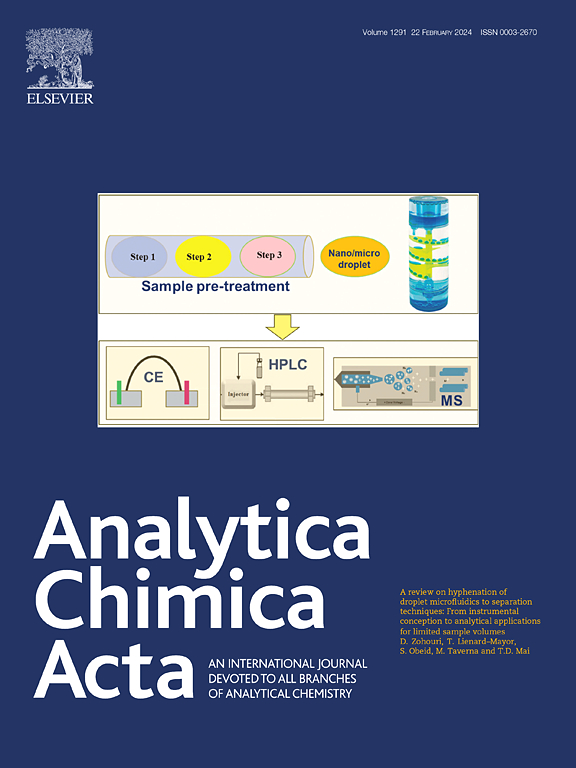Sulfolane as a novel stationary phase for analytical separations by gas chromatography
Abstract
Sulfolane is explored as a novel stationary phase for use in analytical separations by capillary column gas chromatography with flame ionization detection (GC-FID). Stainless steel capillaries were found to provide a good substrate for coating and retaining a sulfolane phase, whereas fused silica tubing did not perform well for this. In general, the phase was found to be stable for several hours of use when using elevated carrier gas pressures (90 psi) and a small restriction (25?μm I.D. tubing) at the outlet. This normally provided good performance at temperatures up to about 200?°C with very little background interference in the FID. Given its separation properties, a short 2?m?×?100?μm I.D. column was found to be preferable for most separations in this study. Measurements indicated the coating procedure yielded a sulfolane film near 4?μm thick on this column, which produced 4400 plates for benzene with a sample capacity near 30?μg. The sulfolane phase yielded good retention and peak shape for many analytes including alkanes, aromatics, alcohols, bases, sulfides, phosphites, thiols, and others. Compared to longer conventional GC columns, the relatively short sulfolane column was found to offer improved selectivity in the separation of unsaturated, aromatic, and alkane test analytes. As such the method was successfully applied to the analysis of aromatics in gasoline headspace. Results suggest that sulfolane could be a potentially useful stationary phase to further explore in GC separations.





